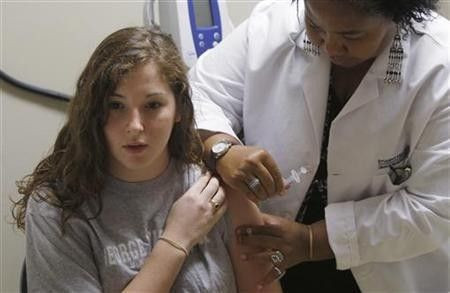Everyone Should Get a Flu Vaccine this Year: CDC

The Centers for Disease Control and Prevention said that everyone six month of age of older should receive flu vaccinations this year. The CDC also said that flu strains are the same as last year's.
The CDC expects the five companies that will provide the vaccine to produce almost 166 million doses, a 9 million dose increase from last year, reported Atlantic Drugs. The increase is partly due to children 6 months to 8 years old who have not received a flu shot in the past needing two shots, one month apart, CDC guidelines said.
The people who received a flu shot last year need one this year because influenza antibodies declined. Patients who are elderly or those with compromised immune systems have seen a particularly down sloping decline in antibodies.
So even people that got a flu vaccine last year should get vaccinated again this year to ensure that they are optimally protected, CDC immunization specialist Dr. Carolyn Bridges said in a media briefing.
People who are severely allergic eggs and those who have displayed an allergic reaction to the flu shot in the past should avoid the flu shot at all costs.
People should receive the vaccination in September or as soon as it is made available.
The CDC also said that flu vaccination production could be increased again should an outbreak occur. The agency said that there will be no shortages of the vaccine this year.
© Copyright IBTimes 2025. All rights reserved.





















